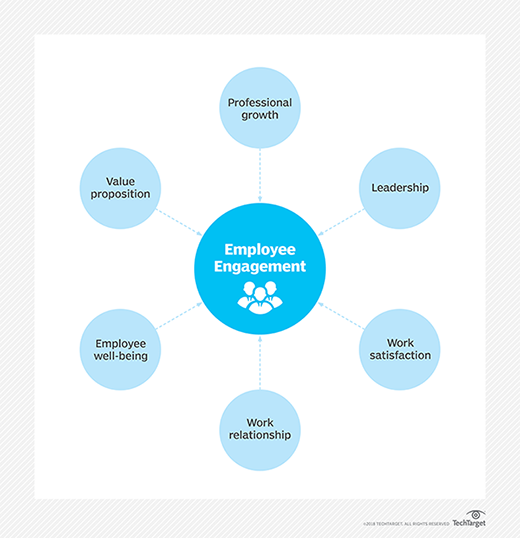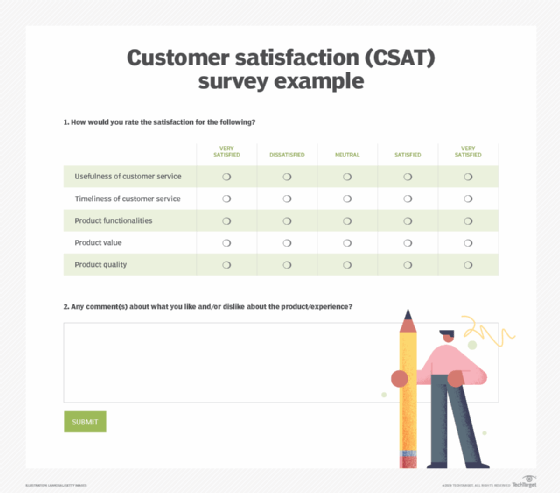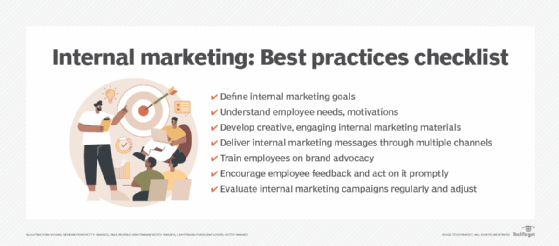internal marketing
What is internal marketing?
Internal marketing is the promotion of a company's objectives, products and services to employees within the organization. The purpose is to increase employee engagement with the company's goals and foster brand advocacy.
Employees who are enthusiastic about their company and its offerings are likely to share that enthusiasm with their social networks. As a result, internal marketing can be an effective part of external branding and marketing efforts.
However, internal marketing can only go so far, since an employee's attitude toward the organization is affected by every element of that individual's experience working for the business.
Therefore, keeping employees happy and engaged throughout their experience with the business is vital to external marketing efforts as well.

Who executes internal marketing programs?
Internal marketing campaigns are often led by a company's human resources department, which is responsible for distributing information and providing training on the company's objectives and strategies.
Examples of internal marketing
Common internal marketing efforts include:
- Ensuring that all employees know that their contributions are essential to its success.
- Educating all employees about the company's products and services.
- Reinforcing the concept that customers are the source of employees' salaries.
- Providing adequate wages, benefits and incentives and a pleasant work environment.
- Acting on employee suggestions that have merit and publicly acknowledging the value of the input.
- Confirming that the corporate mandate and objectives are clearly described and disseminated throughout the organization.
- Providing opportunities for advancement, professional development and promotion.
- Ensuring that the corporate culture promotes work-life balance.
- Fostering internal communications and collaboration among employees through various methods.
The benefits of internal marketing
Internal marketing operates on the idea that the opinions of a company's customers are based on their experiences with the business, not just with the products.
By treating employees as "internal customers," internal marketing helps employees align with the company's vision and operations. In turn, they provide their customers with a consistent and valuable experience.
Ultimately, a company with high levels of employee engagement is more likely than its competitors to have higher external customer satisfaction, employee retention and profitability rates.

Best practices for executing an internal marketing program
There are several ways to ensure that internal marketing efforts are successful. Here are some best practices:
Define the company's internal marketing goals
Before employees can be championed to achieve a company's strategic objectives, they must first know what they are.
Understand the needs of employees and what motivates them
True employee satisfaction depends on more than just a paycheck. Employees need to feel like they are part of a team and that their work is valuable.
Create internal marketing materials that are creative and engaging
Interact with employees through engaging material such as blogs, newsletters, emails, videos and social media posts.
Deliver internal marketing messages through multiple channels
Share internal marketing communications through channels that employees use and enjoy.
Train employees on how to be brand advocates
Teach employees how to be positive brand ambassadors for the company, both online and offline. This will ultimately help the organization to build better brand awareness overall.
Encourage employee feedback and act on it promptly
Encourage staff members to give their input on corporate policies, management and marketing tactics -- including criticism.
Evaluate the results of internal marketing campaigns regularly and adjust
As companies grow, their internal processes and roles evolve, and so should the internal marketing program.

Effective internal marketing
Internal marketing is a company's strategy for promoting its brand to its employees. By aligning employees with the company's vision and operations, internal marketing helps create a positive customer experience.
When executed correctly, effective internal marketing initiatives can lead to increased employee engagement, satisfaction and motivation, leading to higher customer satisfaction rates.
A company's success with an internal marketing program ultimately relies on the company's ability to properly engage and motivate employees. Companies can create a successful internal marketing strategy by following the best practices outlined above.
See also: learn about employee experience and employee lifecycle, strategies and tools to prevent employee isolation, how to prevent employee burnout and how HR can help support employees' mental health and well-being.
